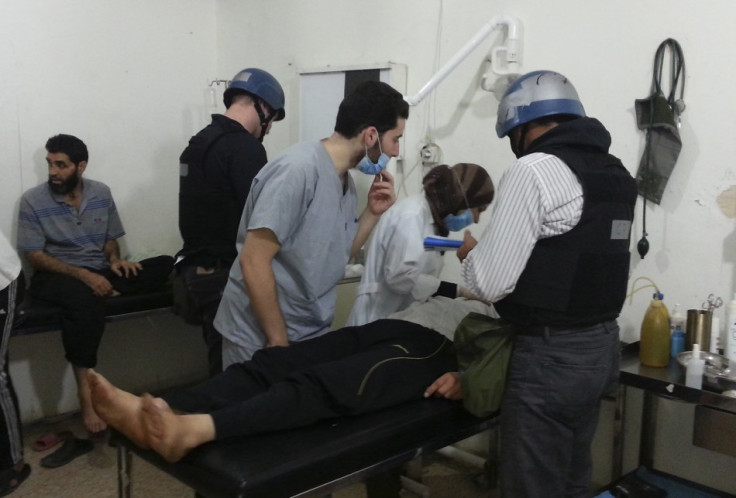Syria: UK Prepares Contingency Plans for Military Action

British armed forces commanders have been preparing contingency plans for military action in Syria in response to the Ghouta chemical weapons attack, according to Downing Street.
Prime Minister David Cameron, who will convene his National Security Council on Wednesday to discuss the crisis, will also consider a recall of parliament if the US decide to hit Syria before 2 September, when MPs are due to return from their summer break.
Although MPs have demanded a debate before British involvement in military action in Syria, the government has no legal obligation to do so as the prime minister can use the Royal Prerogative to deploy ground troops.
A spokesperson for No 10 said: "We are continuing to discuss with our international partners what the right response should be, but, as part of this, we are making contingency plans for the armed forces."
Downing Street also said that any response would be "proportionate". UN weapons inspectors visited five sites around Damascus where 300 people were reportedly killed by rockets loaded with toxic gas last Wednesday.
Downing Street stressed that no decision had been taken and any action would be in compliance with international law, although Cameron would not necessarily wait for the UN report before deciding what action to take.
More than 60 MPs have signed a parliamentary motion calling for the House of Commons to be recalled later this week.
Labour's shadow foreign secretary Douglas Alexander said he was not prepared to write the government a blank cheque as far as military strike was concerned.
"Is it a broad objective of changing the civil war or trying to remove (President) Bashar al-Assad or is it a more limited objective of trying to degrade his capability to use these weapons with impunity?" he asked.
UK foreign secretary William Hague said that a response would be in accordance with international law.
According to reports, US president Obama is pondering a one-off military strike of limited scope and duration to punish Syria for its use of chemical weapons. It would also serve as a deterrent.
The attack would last no more than two days and involve sea-launched cruise missiles, according to the Washington Post.
US secretary of state John F. Kerry said on Monday that the use of chemical weapons against civilians is now "undeniable".
Syria has accused Kerry of lying by claiming that Assad forces carried out a large-scale chemical attack in Ghouta.
Russia's foreign minister Alexander Lukashevich warned of "catastrophic consequences" for Syria if the US and the UK decide to take action against Assad.
"Attempts to bypass the Security Council, once again to create artificial groundless excuses for a military intervention in the region are fraught with new suffering in Syria and catastrophic consequences for other countries of the Middle East and North Africa," he said.
Iran also warned against foreign military intervention in Syria. Abbas Araqchi said there will be dangerous consquences for the region in case of any military intervention. "We want to strongly warn against any military attack in Syria. There will definitely be perilous consequences for the region," Araqchi told a news conference. "These complications and consequences will not be restricted to Syria. It will engulf the whole region."
READ:
European Markets Down as Syria War and US Debt Fears Mount
Asian Markets Choppy on Syria War Fears
Syria Opposition Calls Off Geneva Peace Talks as Russia Warns US Over Strike
Syria: UN Inspectors Convoy Hit by Sniper Fire on Ghouta Mission
Syria: Assad's Army Officers 'Unaware' of Rockets Loaded with Toxic Gas in Ghouta Attacks
Syria: Strike Against Assad 'Within International Law' Says William Hague
Syria: Western Chemical Weapons Experts Cast Doubt on Obama Nerve Gas Claims
© Copyright IBTimes 2025. All rights reserved.






















